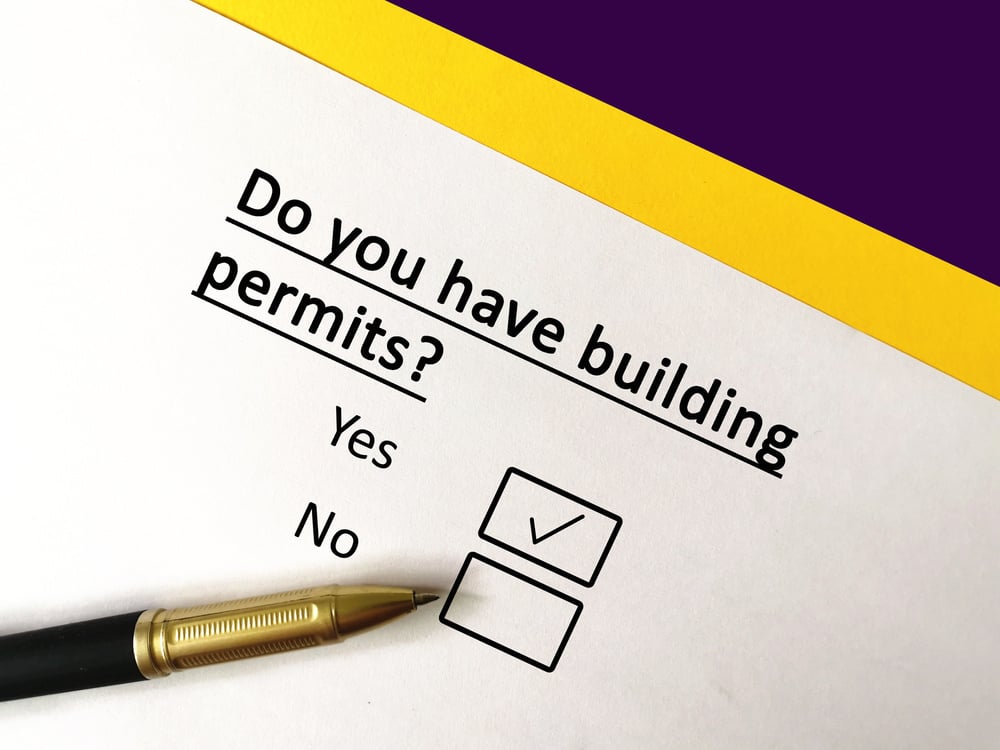Home Project Permits: A City-by-City Guide for Homeowners
Planning a home renovation? This guide breaks down when you need permits for home projects, covering everything from fences to pools.

Planning a home improvement project? Whether you're installing a fence, building a deck, or upgrading your electrical wiring, understanding council approvals and permits for home projects is crucial. Failing to secure the right permits can lead to fines, legal issues, or even having to remove the work altogether. This guide will help you navigate the requirements across Australia, ensuring your project complies with local regulations.
Why Permits Matter
Permits are designed to ensure that construction work meets safety, environmental, and community standards. They vary depending on the type of project, location, and local council regulations. Some projects may qualify as exempt developments, while others require full approval before work begins.
Common Home Projects That Require Permits
Fencing and Boundary Walls
Regulations for installing fences differ across states and local councils. Here are some general guidelines:
- Sydney: Fences on bushfire-prone land must be non-combustible, and certain areas have restrictions on barbed wire or electric fencing.
- Melbourne: Front fences should align with the heritage character of the area, be no more than 1.5 metres high, and maintain at least 50% transparency.
- Brisbane: Residential fences under 2 metres high typically don’t require approval unless they are pool fences or retaining walls.
- Perth: Pool fences over 1.8 metres require a building permit, particularly if they double as balustrades.
- Hobart: Solid fences up to 1.2 metres are exempt, but anything taller must have at least 30% transparency.
- Adelaide: Masonry fences over 1 metre and any retaining wall over 1 metre require approval.
- Darwin: No approval is needed for fences under 1 metre or those with open designs like chain mesh.
- Canberra: Open space boundary fences must be below 1.8 metres and comply with colour regulations.
Electrical Work
Electrical projects require strict compliance due to safety risks. Here’s what you need to know:
- Sydney: Any electrical work must be done by a licensed electrician, regardless of cost.
- Melbourne: Electrical permits are required for new wiring, switch replacements, and work on life safety systems.
- Brisbane: Different licences are needed depending on the work—mechanic, linesperson, fitter, jointer, or restricted electrical work.
- Perth: Electrical work includes installations, maintenance, and repairs on appliances above 50 volts and must be done by licensed professionals.
Decks, Pergolas, and Outdoor Structures
The rules for building decks, pergolas, and sheds vary by location:
- Sydney & Melbourne: Generally, decks under 1 metre high and under a certain size may not need approval.
- Brisbane: Approval is required if the structure affects stormwater runoff or exceeds height restrictions.
- Perth: A permit is required for masonry structures over 0.75 metres.
- Hobart & Adelaide: Heritage zones often impose additional restrictions.
- Canberra & Darwin: Exemptions may apply for smaller structures, but it’s best to check with the council.
Swimming Pools and Safety Barriers
Swimming pools and their fencing must comply with national safety standards. Regulations include:
- All states: Pool fences must be at least 1.2 metres high and self-latching.
- Brisbane: Pool fences cannot restrict water runoff from neighbouring properties.
- Perth: As of June 2024, most pool fences will not require a permit unless they also function as balustrades or are made of masonry over 0.75 metres high.
How to Apply for Permits
Each state and territory has an online portal or local council office where you can apply for permits. Steps typically include:
- Checking regulations – Visit your local council’s website to determine if your project requires approval.
- Submitting an application – Provide plans, site details, and relevant documentation.
- Paying fees – Fees vary based on project type and location.
- Waiting for approval – Processing times range from a few days to several weeks.
- Compliance inspections – Some projects require inspections during or after completion.
For detailed information on permits and council approvals for home projects in various Australian cities, you can refer to the following official government websites:
- Sydney: NSW Planning Portal
- Melbourne: Victoria State Government - Planning Permits
- Brisbane: Brisbane City Council - Planning and Building
- Perth: Western Australian Government - Building Approval
- Hobart: City of Hobart - Planning and Building
- Adelaide: SA Building Rules, Regulations, and Information
- Darwin: Northern Territory Government - Building and Renovating
- Canberra: ACT Government - Planning and Development
These resources provide comprehensive guidelines and regulations specific to each city, helping you determine the necessary permits and approvals for your home projects.
Avoiding Common Pitfalls
- Skipping approval: Don’t assume a project is exempt—always check with your council.
- Ignoring heritage overlays: If your property is in a heritage zone, stricter rules apply.
- DIY mistakes: Work that doesn’t meet standards may need to be redone at your expense.
- Incomplete documentation: Ensure your application includes all required details, such as site plans and engineering reports.
- Delaying permit applications: Starting work without approval can lead to fines and project delays.
Navigating permits can be overwhelming, but hiring a licensed tradie ensures your project complies with all regulations. A qualified professional will handle approvals, inspections, and construction, saving you time and stress. Find experienced tradies on ServiceSeeking.com.au today!
Understanding permits for home projects is essential to avoid costly mistakes and ensure safety. Each council has specific requirements, so always check before starting any work. If in doubt, hire a tradie to handle the process for you. Whether it’s fencing, electrical work, or a new deck, compliance is key to a successful project.
